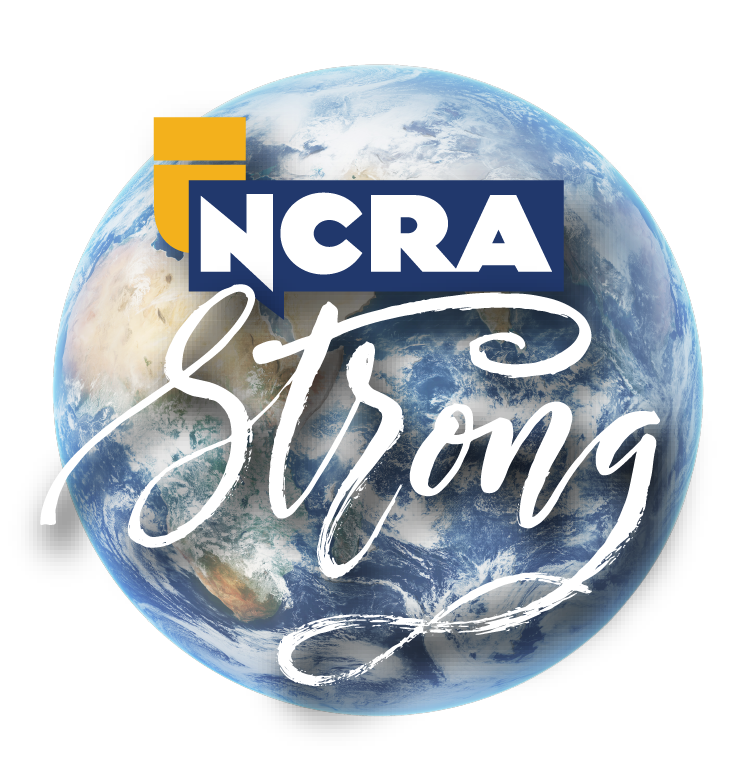By Liz Harvey
Our profession is under attack. It seems like a new transcription company pops up every day pretending to be a technology company, promising something new and exciting. Even though they offer an inferior product, they have effective marketing techniques, especially in the use of buzzwords. What is a buzzword exactly?
Let’s start with a definition. Merriam-Webster defines a buzzword as “an important-sounding usually technical word or phrase often of little meaning used chiefly to impress laymen.” And while the use of buzzwords may seem recent, they date back to the 1940s, when Harvard students coined the phrase to describe keywords to help them quickly recall important concepts in their studies. [1]
Many digital entrants are funded by private equity money and are promoting voice recognition and artificial intelligence as the new shiny object. They have the advantage in terms of marketing dollars, and the use of buzzwords is an easy and effective strategy.
While some digital firms have coined their terms, they often simply appropriate our terminology for themselves, which confuses consumers. What easier way to gain credibility than by assuming the mantle of professionalism, integrity, and impartiality we have earned? Digital recording operators are called “digital court reporters!” They use “state-of-the-art digital technology!” You’ll also see references to “powerful AI!” “Method-agnostic connected ecosystems!” “Disruption!” It sounds great, but it’s all about disguising opinions as fact, and it misrepresents the actual truth. Buzzwords and short phrases can be effective, so how do we redirect the conversation?
Don’t be misled by this type of marketing, and don’t let your clients be misled either. While we may not have the advertising reach, we have something far more valuable – our personal connections every time we are in the courtroom or at a deposition. It is essential for each of us to speak up and advocate in a thoughtful way to correct this kind of misinformation. Think about how to respond in clear and direct language. Don’t be angry or defensive. Always respond in terms of how we best fulfill the needs of the marketplace. Be ready with accurate information that can be presented quickly.
Here are some things to consider when addressing the claims being made by digital proponents:
Digital reporting? Using a practice of recording proceedings and transcribing them later is not “reporting.” It’s digital recording. We create a record in real time, and we are responsible for that record from the beginning of the proceedings until the final transcript is delivered. Many of us now refer to ourselves as stenographers. If you’re in a cert state, you can use your certification, i.e. “Washington Certified Court Reporter.” I’ve considered the term “steno machine writer.” Another way we can differentiate ourselves is by referring to “editing” our transcripts, not “transcribing.”
Digital state-of-the-art technology? That’s not true. There’s nothing new about digital recording. It’s simply old-fashioned transcription after the fact. We have always embraced and adapted to changing technology. A stenographer or voice writer captures testimony in real time with multi-modal backups. No other method can do this. We have true top-tier technology.
Powerful AI and voice recognition? While many companies tout extremely high translation rates, independent studies put the figure closer to 80 percent. As a Stanford University[2] study found, the inability of voice recognition systems to understand accents and dialects poses the risk of biased systems which may lead to discriminatory outcomes. In a separate article in The National News,[3], the Stanford study leader, Allison Koenecke, says, “there are many higher-stakes applications with much worse consequences if the underlying technologies are biased. One example is court transcriptions, where court reporters are starting to use speech recognition technologies. If they aren’t accurate at transcribing cases, you have obvious repercussions.” This issue, which may impact equal access to justice, extends to other underrepresented communities, including disabled individuals, as noted in an article in Scientific American. [4]
Questions are being raised about how much of the current AI cycle is hype. A 2019 analysis of European AI tech startups found that 40 percent of them showed no evidence of actually using AI. A Bloomberg[5] article reports that many Silicon Valley startups use a “fake it ‘til you make it” strategy, using human labor behind the scenes to do the work. These articles also point out that this practice often leads to the exploitation of low-wage workers.
This brings to mind an American Association of Electronic Reporters and Transcribers (AAERT) study that was done in 2013 that found it took one digital operator and five transcribers to transcribe 20 minutes of testimony. Fast forward to today, where, for example, one vendor touts its system “is powered by its exclusive Multi-Intelligence Service Team, a finely tuned combination of multiple human transcriptionists and state-of-the-art technology.”
When multiple people work on a transcript, it calls into question the chain of custody of exhibits and confidential information. Who can certify a record created by multiple people? Who is responsible for authentication and the accuracy of the transcript? These issues are concerning for clients.
We are our own best advocates. When new claims are made by companies who want to replace us with low-cost transcription, we can refute those claims because we are better. Take some time to make sure you have the latest information and are armed with the facts to overcome slick marketing pitches. Make sure to keep your skills sharp. Be the best you can be. Check the NCRA STRONG Resource Library for new materials. Keep up with developments through social media and your state associations. Steno remains the gold standard, and it’s up to us to make sure the world knows it.
Liz Harvey, RPR, is a freelance court reporter from Seattle, Wash., and a member of the NCRA STRONG Committee. She can be contacted at lizharveyccrrpr@gmail.com.
[1] Hallgren, F. M., and H. Weiss. “‘Buzz words’ at the B School.” American Speech 21 (1946): 263.
[2] https://fairspeech.stanford.edu/
[3] https://www.thenationalnews.com/arts-culture/comment/2021/11/07/accents-and-ai-how-speech-recognition-software-could-lead-to-new-forms-of-discrimination
[4] https://www.scientificamerican.com/article/speech-recognition-tech-is-yet-another-example-of-bias/
[5] https://www.bloomberg.com/opinion/articles/2021-10-13/how-good-is-ai-much-artificial-intelligence-is-still-people-behind-a-screen




